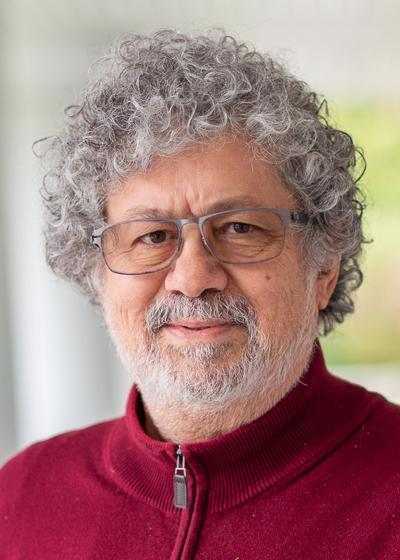About:
Semih Eser is a professor of energy and geo-environmental engineering. Eser received his B.S. (1976) and M.S. (1978) degrees in chemical engineering from the Middle East Technical University in Ankara, Turkey, and his Ph.D. (1986) in Fuel Science from Penn State.
From 1987 to 1988, he worked as a research associate in the Department of Chemical Engineering at Auburn University. He returned to Penn State in 1988 and was appointed an assistant fuel science assistant professor in 1989. He served the Department of Energy and Geo-Environmental Engineering as associate head (2001–2006) and Acting Head (2004). At the EMS Energy Institute, Eser was the associate director and director of the Laboratory for Hydrocarbon Process Chemistry (1995–2000). Currently, he teaches at the John and Willie Leone Family Department of Energy and Mineral Engineering and serves as the director of Carbon Materials Program at the EMS Energy Institute. His professional activities include serving as Program Chair (2004) and Executive Committee Chair (2006), and Councilor (2010–2012) of the Fuel Chemistry Division, and Councilor (2013–2021) of the Energy and Fuels Division of American Chemical Society. He has been inducted as an ACS Fellow in 2014.
Professor Eser currently serves on the editorial boards of the Journal of ASTM International, Journal of Oil, Gas, and Coal Technology, Journal of New Carbon Materials, and as section editor of Energy and Fuels in the Chemistry Central Journal. Eser's research interests include the reactivity and microscopic characterization of cokes and carbons, coke/carbon formation and deposition mechanisms, inhibition of undesired carbon deposition, and molecular analysis and processing of petroleum feedstocks. In 2014, Professor Eser was awarded a Fulbright Scholarship to teach at Izmir Technology Institute in Turkey.
Active research projects involve the desirable and undesirable coke/carbon formation in petroleum refining processes and internal combustion engines. Common themes and tools used in these projects include microscopic characterization of the solid carbons (polarized-light microscopy, SEM, and TEM, as necessary) along with X-ray diffraction (XRD), spectroscopic (EDX, XPS, etc.), and reactivity (temperature-programmed oxidation) analyses to understand the formation/deposition pathways. A careful synthesis of data from microscopic and spectroscopic analyses provides means of promoting desirable reactions (e.g., carbonaceous mesophase formation for manufacturing graphitizable cokes) and inhibiting undesirable reactions (e.g., solid deposition in engine fuel and lubrication systems).
- S. Andreoli, S.H. Brown, S. Uppili, and S. Eser, “Laboratory Coking and a New Optical Texture Classification Parameter: Screening of Petroleum Refinery Streams for Premium Needle Coke Production,” Energy & Fuels 36, 10910-10919, 2022.
- S. Andreoli and S. Eser, “Composition of Surface Groups and Adsorption Properties of Activated Carbons Derived from Different Bio-precursors,” Chemical Engineering Transactions 86, 637-642, 2021.
- S. Andreoli and S. Eser, “Relating Reactivity to Structure in Cokes and Carbon Materials: Temperature-Programmed Oxidation and Microscopy Techniques,” Carbon 168, 362-371 2020.
- C. Fernandez-Ruiz, J. Bedia, S. Andreoli, S. Eser, J. J. Rodríguez, “Selectivity to Olefins in the Hydrodechlorination of Chloroform with Activated Carbon-Supported Palladium Catalysts,” Ind. Eng. Chem. Res. 58, 20592-20600, 2019.
- J. A. Baeza, L. Calvo, N. Alonso-Morales, F. Heras, S. Eser, J.J. Rodriguez, M. A. Gilarranz, “Effect of structural ordering of the carbon support on the behavior of Pd catalysts in aqueous-phase hydrodechlorination,” Chemical Engineering Science 176, 400-408, 2018.
- J. P. Abrahamson, R. T. Wincek, S. Eser, “Scheme for Hydrotreatment of Fluid Catalytic Cracking Decant Oil with Reduced Hydrogen Consumption and High Needle Coke Yield upon Carbonization,” Energy Fuels 30, pp. 8150-8155, 2016.
- Ronald T. Wincek, Joseph P. Abrahamson, and Semih Eser, “Effects of Catalyst Properties on Hydrodesulfurization Activity for Sulfur Removal from Fluid Catalytic Cracking Decant Oils,” Energy Fuels 30, 7173-7179, 2016.
- Ronald T. Wincek, Joseph P. Abrahamson, and Semih Eser, “Hydrodesulfurization of Fluid Catalytic Cracking Decant Oils in a Laboratory Flow Reactor and Effect of Hydrodesulfurization on Subsequent Coking,” Energy Fuels 30, pp 6281–6289, 2016.
- L. Briesemeister, A. Geißler, S. Halama, S. Herrmann, U. Kleinhans, M. Steibel, M. Ulbrich, A. W. Scaroni, M. R. Khan, S. Eser, L. R. Radovic, “Coal Pyrolysis,” Ullmann's Encyclopedia of Industrial Chemistry, 2016.
- Elena Diaz, Angel F. Mohedano, Jose A. Casas, Cigdem Shalaby, Semih Eser, Juan J. Rodriguez, “On the performance of Pd and Rh catalysts over different supports in the hydrodechlorination of the MCPA herbicide,” Applied Catalysis B: Environmental, Volume 186, 151-156, 2016.
- M. Martin-Martinez, A. Álvarez-Montero, L.M. Gómez-Sainero, R.T.Baker, J. Palomar, S. Omar, S. Eser, J.J. Rodriguez, “Deactivation Behavior of Pd/C and Pt/C Catalysts in the Gas-Phase Hydrodechlorination of Chloromethanes: Structure–Reactivity Relationship,” Applied Catalysis B: Environmental 162, 532-543, 2014.
- N. Alonso-Morales, M. A. Gilarranz, F. Heras, J. J. Rodriguez, and S. Eser, “Oxidation Reactivity and Structure of LDPE-Derived Solid Carbons: A Temperature-Programmed Oxidation Study,” Energy Fuels 27, 1151-1161, 2013.
- American Chemical Society Division of Energy and Fuels, 2022 Distinguished Service Award, 2023.
- Department of Materials Science and Engineering, Service Award, 1996
- ACS, Fuel Chemistry Division, Outstanding Service Award, 1997, 2000, 2004
- ACS 1999 ChemLuminary award on behalf of the Fuel Chemistry Division in the ACS Division Membership Contest, 218th ACS National Meeting, New Orleans, LA, 1999
- College of Earth and Mineral Sciences, Wilson Award for Outstanding Teaching, 2001
- ACS Innovative Projects Fund for Divisional Enhancement Award for "Attracting Graduate and Undergraduate Students to Divisional Activities at ACS National Meetings," 2005.
- ACS Innovative Projects Fund for Divisional Enhancement Award for "Public Education and Outreach for Basic Literacy on Energy and Fuel Issues," 2006.
- ACS 2007 ChemLuminary Award on behalf of the Fuel Chemistry Division for "Recognition of Innovation and Outstanding Service to Members of a Division," 2007.
- 2014 ACS Fellow, 2014
- Fulbright Scholarship to teach at Izmir Technology Institute, Turkey, 2014


